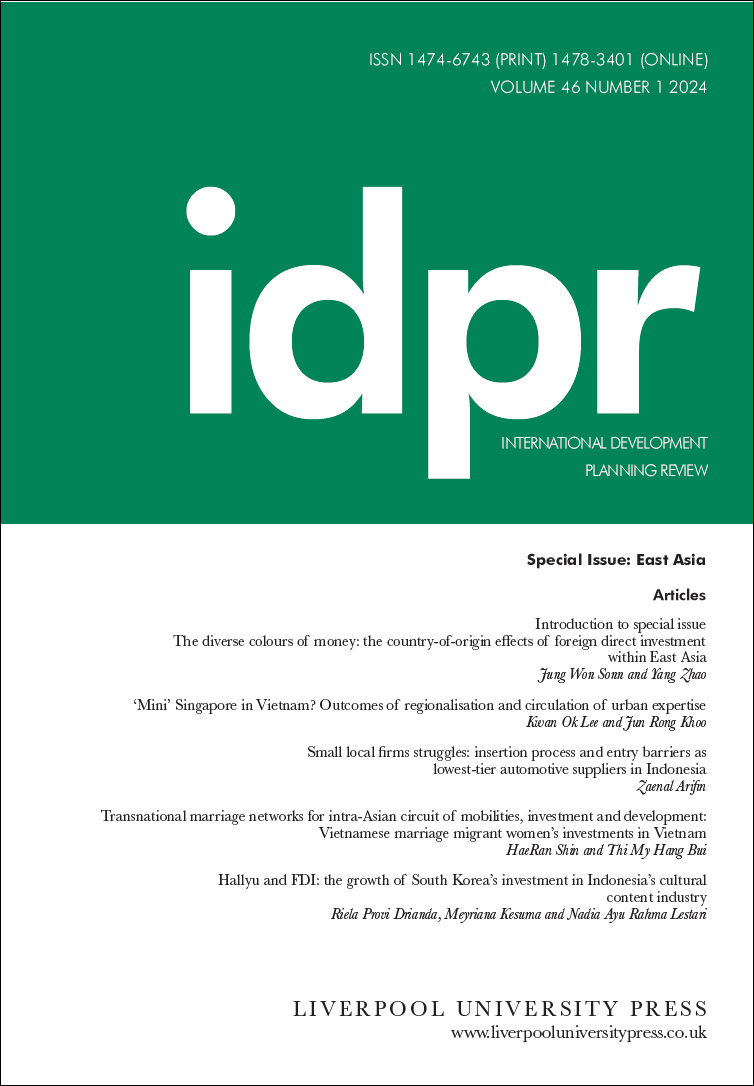The editors of International Development Planning Review (IDPR) have selected the following paper as the Featured Article in IDPR 46.1.
This paper will be free to access for a limited time:
‘Transnational marriage networks for intra-Asian circuit of mobilities, investment and development: Vietnamese marriage migrant women’s investments in Vietnam’ by HaeRan Shin and Thi My Hang Bui.

When asked to describe the paper and highlight its importance, the authors stated the following:
How does international marriage migration intersect with regional development? This paper goes beyond the usual discussions on remittances and poverty reduction, introducing marriage migration as a key driver in the modern dynamics of capital flows and mobilities, particularly within the global East. Our study sheds light on the significant role that international marriage migration plays in driving considerable capital flows and temporary mobilities between South Korea and Vietnam. Drawn on ethnographic research methods, we explain how Vietnamese marriage migrant women and their Korean husbands restyled their remittances towards investments in land and Korea-related businesses in hometowns, the Mekong Delta area, and big cities in Vietnam through transnational marriage networks.
We link the rise of transnational investments and mobilities to the broad political and economic reforms in both South Korea and Vietnam, as well as to the nuanced operations of transnational marriage networks. At a macro level, initiatives like South Korea’s dual citizenship policy and Vietnam’s revised land laws for overseas citizens illustrate governmental support for these transnational ties. We also found that transnational marriage networks, which involve both the Vietnamese ethnic networks of the wives and the Korean ethnic networks of the husbands, were leveraged to create increased opportunities for sending remittances, both as a stipend and an investment. These investments, coupled with the cultural and capital aspirations of the women’s families, have facilitated family members’ temporary relocations to South Korea. This cycle further stimulates capital flows from South Korea to Vietnam.
Our findings shed light on the complex interplay between transnational marriage-based networking, economic activities, and family mobilities, offering a detailed perspective on capital flows, mobilities, and transnational networks in Asia. We recommend acknowledging the circular relations of capital flow, mobilities and transnational networks and paying more attention to the significance of transnational marriage between two ethnic communities as an impetus for economic stimulus in the sending country.
– HaeRan Shin and Thi My Hang Bui, Department of Geography, Seoul National University.

Follow us for more updates
Sign up to our mailing list
Twitter | Instagram
www.liverpooluniversitypress.co.uk
